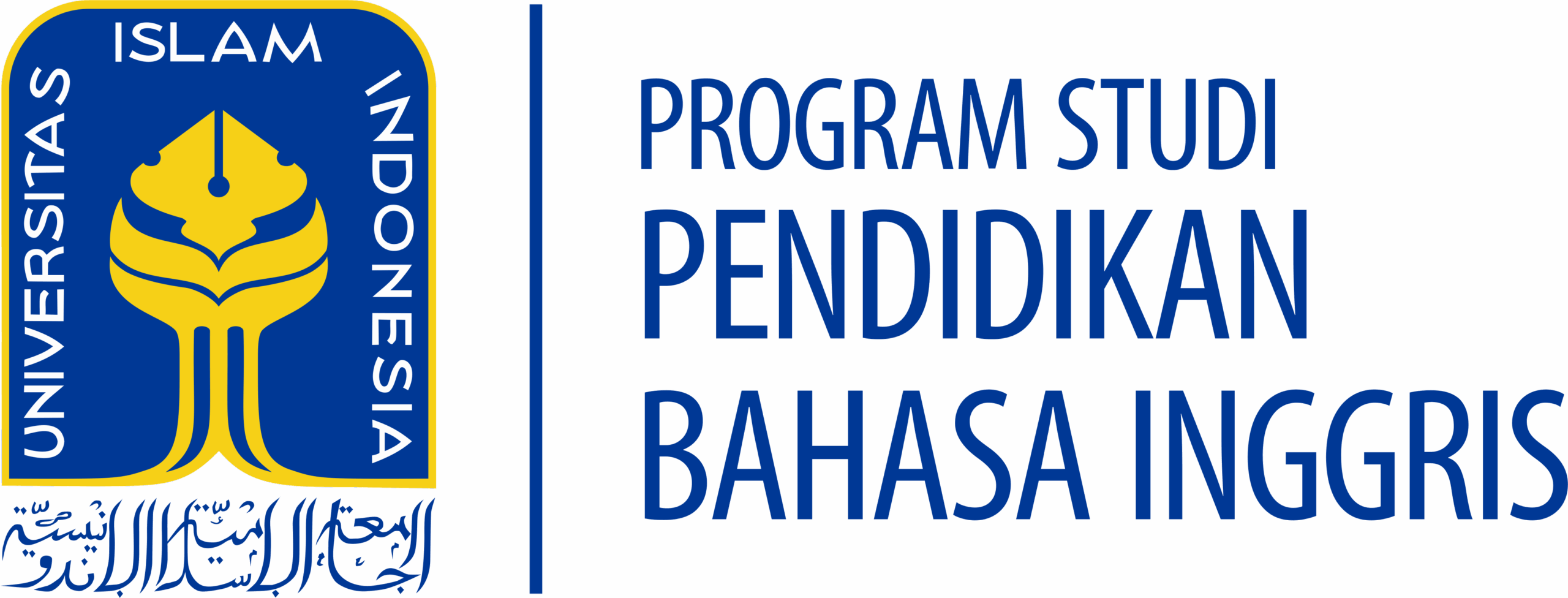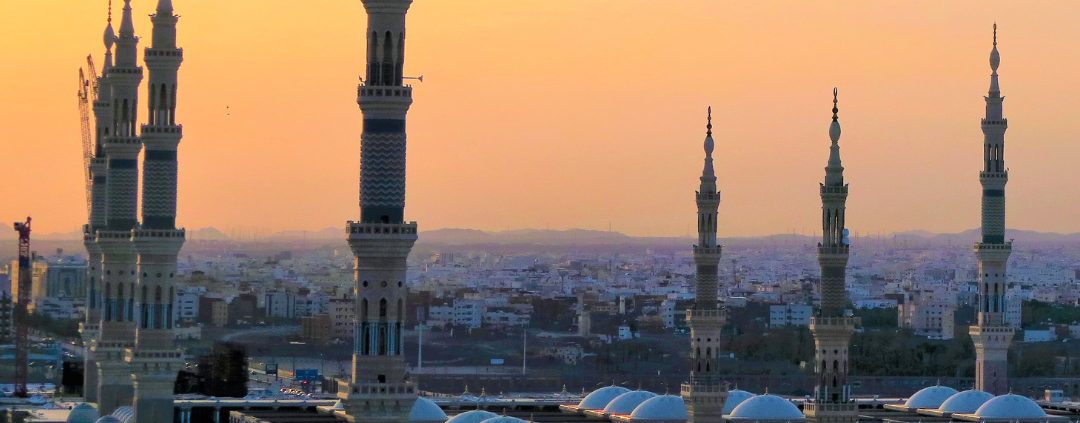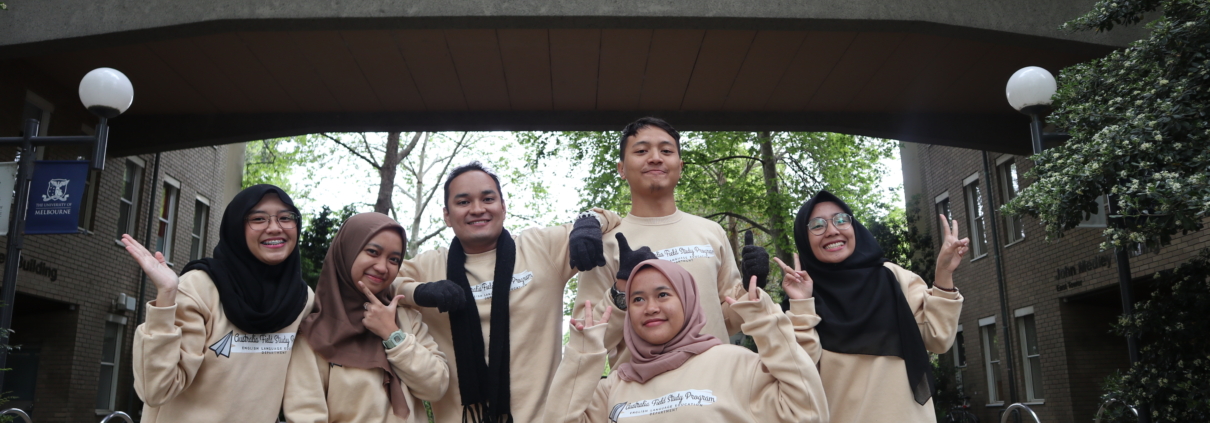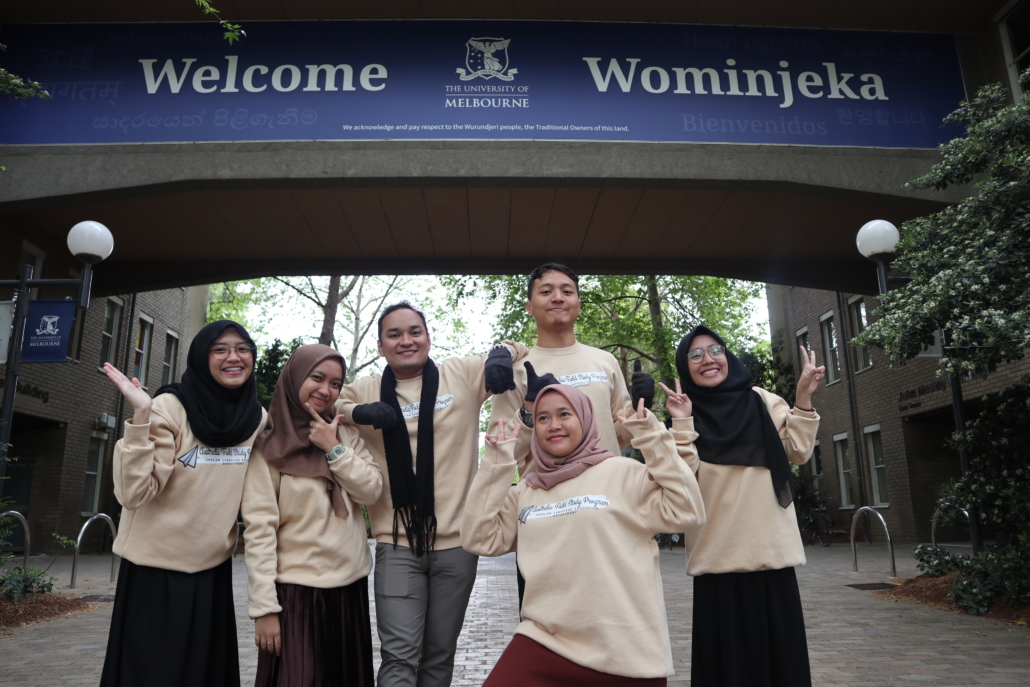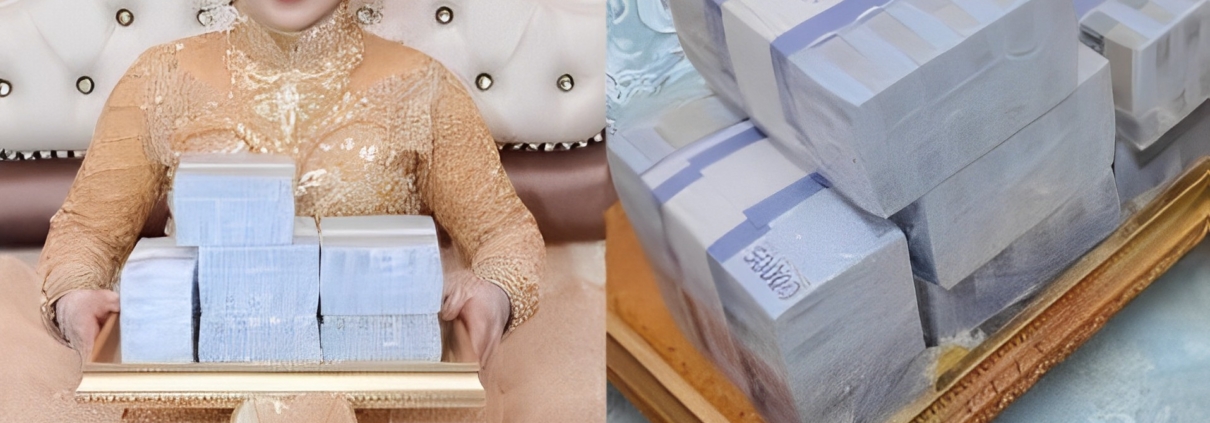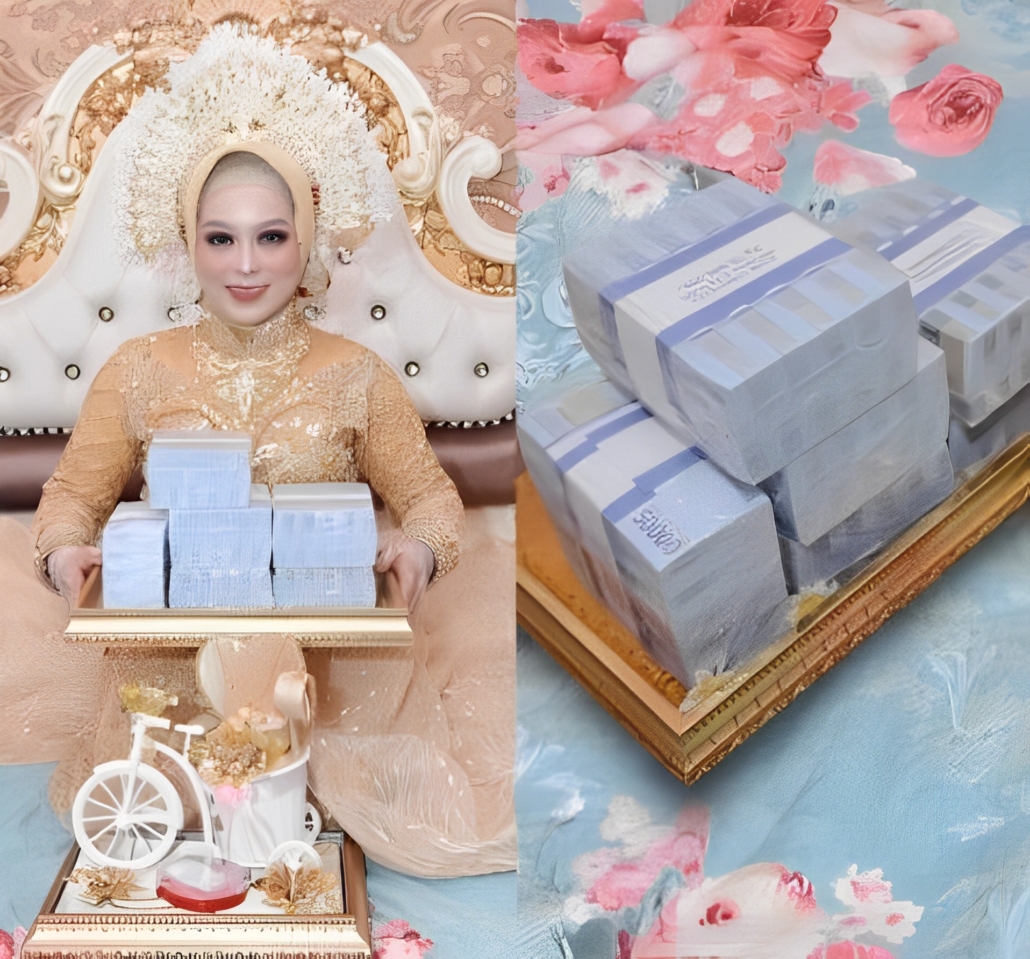by Roro Millatu Al Ghaniy

In today’s digital world, the endless stream of information opens wide opportunities to elevate knowledge. However, it may shape the way we perceive ourselves. Some information produces perfection and offers imaginary expectations. As an impact, some people start questioning their self-competence, “What do they think of me? Am I doing enough? Will I ever be good enough?” These mental battles lead to self-doubt, which can hinder personal growth. The development of a mentality, called “FOMO” (Fear of Missing Out) traps us in unwritten competition. Sharing only the best achievements, most perfect angles, and happiest feelings. In the pursuit of social validation, we neglect the natural process of human life. Unfortunately, this behavior takes us deep into our insecurity and overthinking. There will be endless questions such as Do they approve of me? Or Have I done enough?. Slowly, it drains our energy to fight back and find our true power. We hold back the real progress in learning and abandon the simple joy of just being human. Releasing is a mental journey that includes self-awareness to recognize the root cause of negative mentality, strengthen our spiritual connection to Allah SWT, embrace our identity, and seek professional help to navigate the struggles.
Recognizing the source of insecurity and overthinking
Insecurity and overthinking are brought on by a number of factors. According to Greenberg (2015), failure or rejection experiences, lack of confidence due to social anxiety, and perfectionism contribute to insecurity. Relationship failure in a relationship, the death of spouses, job loss, and serious illnesses are all frequent occurrences. These can have a detrimental effect on our happiness and can influence our self-esteem and confidence. With lower self-esteem and confidence, we will view ourselves more negatively, and reactive to failure. Furthermore, many of us nowadays lack confidence in social situations such as family gatherings and interviews. The fear of being criticized by others and found to be lacking can lead to anxiety, self-consciousness, and uncomfortable feelings. Perfectionism has also become another main contributor to insecurity. We often have unrealistic expectations. Achieving the highest grades, getting the best job, and owning a beautiful house are a few examples of the aforementioned expectations. Unfortunately, life doesn’t always turn out the way we would like it to, even when we work super hard. Something is always beyond our control. If we continue to be disappointed and blame ourselves for not achieving the expectations, we will start to feel insecure, undeserving, and will be unable to stop overthinking (Greenberg, 2015).
Although insecurity prevents us from reaching our greatest potentials, it should be acknowledged that we will never be able to completely eradicate it. Unlike robots, we do have feelings. Though dealing with insecurity and overthinking is hard, we can learn to cope better. Islam teaches us to deal with insecurity and overthinking. Some of Islam’s most effective ways to deal with insecurity and overthinking are (1) improving spirituality, (2) improving self-awareness, and (3) seeking professional help.
Improving Spirituality
Gratitude is one of the vital aspects in life. Whatever happens, we must believe that everything happens according to Allah SWT’s plans and there are always good reasons behind them. Hence, we will always try to be the best version of ourselves by improving our quality and capacity. In addition, performing prayer (salah) and dhikr can also reduce our insecurity effectively. Salah can be one of the most effective ways to cope with insecurity and overthinking and improve mental health.
ٱلَّذِينَ ءَامَنُوا۟ وَتَطْمَئِنُّ قُلُوبُهُم بِذِكْرِ ٱللَّهِ ۗ أَلَا بِذِكْرِ ٱللَّهِ تَطْمَئِنُّ ٱلْقُلُوبُ
“Those who believe and whose hearts find comfort in the remembrance of Allah. Surely in the remembrance of Allah do hearts find comfort.” (Q.S. Ar-Ra’d [13]: 28)
ٱتْلُ مَآ أُوحِىَ إِلَيْكَ مِنَ ٱلْكِتَـٰبِ وَأَقِمِ ٱلصَّلَوٰةَ ۖ إِنَّ ٱلصَّلَوٰةَ تَنْهَىٰ عَنِ ٱلْفَحْشَآءِ وَٱلْمُنكَرِ ۗ وَلَذِكْرُ ٱللَّهِ أَكْبَرُ ۗ وَٱللَّهُ يَعْلَمُ مَا تَصْنَعُونَ
“Recite what has been revealed in the Book and establish prayer. Indeed, genuine prayer should deter one from indecency and wickedness. The remembrance of Allah is an even greater deterrent. And Allah fully knows what you all do.” (Q.S. Al-‘Ankabut [29]: 45)
As narrated in Q.S. Ar-Rad [13]: 28 and Q.S. Al-Ankabut [29]: 45, Salah offers two benefits: (1) heart fulfillment and (2) a means of preventing bad behavior. We develop specific thoughts, feelings, and imagination toward Allah when praying. These thoughts, feelings, and imagination toward Allah improve heart satisfaction and strengthen our defense against evil.
Furthermore, reciting the holy Qur’an can be another effective way in reducing insecurity and overthinking. The Qur’an was, is, and continues to be the mercy, guidance, and cure, as mentioned in Q.S. Fussilat [41]: 44:
وَلَوْ جَعَلْنَـٰهُ قُرْءَانًا أَعْجَمِيًّۭا لَّقَالُوا۟ لَوْلَا فُصِّلَتْ ءَايَـٰتُهُۥٓ ۖ ءَا۬عْجَمِىٌّۭ وَعَرَبِىٌّۭ ۗ قُلْ هُوَ لِلَّذِينَ ءَامَنُوا۟ هُدًۭى وَشِفَآءٌۭ ۖ وَٱلَّذِينَ لَا يُؤْمِنُونَ فِىٓ ءَاذَانِهِمْ وَقْرٌۭ وَهُوَ عَلَيْهِمْ عَمًى ۚ أُو۟لَـٰٓئِكَ يُنَادَوْنَ مِن مَّكَانٍۭ بَعِيدٍۢ
Had We revealed it as a non-Arabic Quran, they would have certainly argued, “If only its verses were made clear in our language. What! A non-Arabic revelation for an Arab audience!” Say, O Prophet, “It is a guide and a healing to the believers. As for those who disbelieve, there is a deafness in their ears and blindness to it in their hearts. It is as if they are being called from a faraway place.” (Q.S. Al-Fussilat [41]: 44)
The aforementioned verse clarified that the Qur’an can treat physical and mental illnesses. Reciting the Holy Qur’an can enhance memory and cognitive function. Our brains will get more skilled and accustomed to doing the task when we recite the holy Qur’an on a regular basis. The more we recite, the stronger our memory will be. As a result, the likelihood of having brain-related illnesses including Alzheimer’s and Dementia can be lowered. Hidayat et al. (2023) discovered that the Holy Qur’an combined with Dhikr can effectively reduce anxiety. One would wonder, how do the Qur’an and Dhikr help lessen anxiety? Reading the Qur’an and performing Dhikr help us remember that we still have Allah. As we constantly think of Him, our hearts will be at ease, our positive mindset will grow, and His guidance will solve every issue.
Improving Self-Awareness
Eurich (2017) defined self-awareness as the capacity to perceive and focus on oneself. Self-awareness is essential to our behavior, satisfaction, and performance (Carden et al., 2022), as it enhances decision-making and team performance (Dierdoff & Rubin, 2015), boosts leadership success, (Showry & Manasa, 2014), and expands career chances (Axelrod, 2012). Moreover, self-awareness has many psychological benefits, such as (1) enhancing self-regulation, (2) raising social awareness, and (3) lowering stress and anxiety. As our self-awareness increases, we become more adaptable and excel at adaptive performance (Park & Park, 2019).
Improving self-awareness can be done in many ways, one of them is reflection. This can be done by asking questions and engaging in self-talk. Insecurity often fuels negative thoughts. Thus, when a negative inner dialogue appears (e.g. why does everyone dislike me?), counter it by thinking positively whenever it arises. Ask yourself to come up with positive affirmations like “I am kind”, “I care about my friends”, “I tell good jokes”, etc. This action enables us to let our brain know that there are brighter possibilities than the ones we think whenever we feel insecure.
وَلَا تَهِنُوا۟ وَلَا تَحْزَنُوا۟ وَأَنتُمُ ٱلْأَعْلَوْنَ إِن كُنتُم مُّؤْمِنِينَ ١٣٩
“Do not falter or grieve, for you will have the upper hand, if you are ˹true˺ believers.” (Q.S. Al-Imran [3]: 139)
As narrated in Q.S. Al-Imran [3]: 139, Allah SWT prohibits us from grieving and from thinking negatively too much about ourselves. We must have faith that there always be valid explanations for any difficulties we face in life. Therefore, whenever we feel insecure and overthink, all we have to do is believe in Him, and life will be back on the right track.
Seeking Professional Help
Seeking professional help is highly recommended when the feeling of insecurity and overthinking negatively affects our daily. Our society’s taboo stigma around psychologist and psychiatric does not prove that we have a mental condition. Nonetheless, it demonstrates that we value mental health and thus, we decide to seek professional help so that our mental issues can be treated professionally. Besides, seeking professional assistance helps us to solve our problems.
As a final reflection, we need to realize that insecurity and overthinking can take a huge space in our hearts. The burden can harm our physical and mental well-being, but healing is the best way to achieve transformative serenity. Islam offers a path to inner harmony through a prayer (Salah), reciting the Holy Qur’an, improving self-awareness, and seeking for professional help. When positive feelings and mindsets surround us, we can cope with insecurity and overthinking effectively to live in peace and harmony. As we embrace these steps, we gradually learn to let go, replacing doubt with trust, fear with faith, and overthinking with the calm certainty that we are enough, just as we are.
REFERENCES
Axelrod SD. 2012. “Self-awareness”: at the interface of executive development and psychoanalytic therapy. Psychoanal. Inq. 32:340–57
Carden, J., Jones, R. J., & Passmore, J. (2021). Defining Self-Awareness in the Context of Adult Development: A Systematic Literature Review. Journal of Management Education, 46(1), 140-177. https://doi.org/10.1177/1052562921990065 (Original work published 2022)
Dierdorff EC, Rubin RS. 2015. Research: We’re not very self-aware, especially at work. Harvard Business Review,March12.https://hbr.org/2015/03/research-were-not-very-self-aware-especially-at-work
Eurich T. 2017. Insight: Why We’re Not as Self-Aware as We Think, and How Seeing Ourselves Clearly Helps Us Succeed at Work and in Life.New York: Crown Bus.
Hidayat, B., Rahman, A.A., Nugroho, S., Leybina, A.V., Muliadi, Listyani, N., & Lubis, L.T. “Al-Qur’an and Dhikr: Are They Effective to Overcome Anxiety Caused by Covid-19 as a Pandemic Condition?” in PSIKIS: Jurnal Psikologi Islami, Vol. 9 No.1, 2023. h. 61-76
Park, Sohee & Park, Sunyoung. (2019). Employee Adaptive Performance and Its Antecedents: Review and Synthesis. Human Resource Development Review. 18. 294–324. 10.1177/1534484319836315.
Showry, Mendemu and Manasa, K.V.L., Self-Awareness – Key to Effective Leadership (October 7, 2014). The IUP Journal of Soft Skills, Vol. VIII, No. 1, March 2014, pp. 15-26, Available at SSRN: https://ssrn.com/abstract=2506605
Image Source: https://images.pexels.com/photos/8303394/pexels-photo-8303394.jpeg?auto=compress&cs=tinysrgb&w=1260&h=750&dpr=1
Author’s Biography
Roro Millatu Al Ghaniy is an English Education Department Islamic University of Indonesia, Yogyakarta lecturer. She completed her master’s in English Language Education at Universitas Negeri Malang. She loves teaching. Before joining the Islamic University of Indonesia Yogyakarta, she actively worked as an English teacher at SMP Ar-Rohmah Putri Boarding School, Dau, Malang (2013-2017) and English Tutor at SMA Brawijaya Smart School, Malang (2020-2023). Besides working at school, she also worked as an English for Specific Purposes (ESP) at the University of Muhammadiyah Malang (2014-2023). Her research interests are English Skills (Speaking and Writing) and English for Specific Purposes (ESP).
